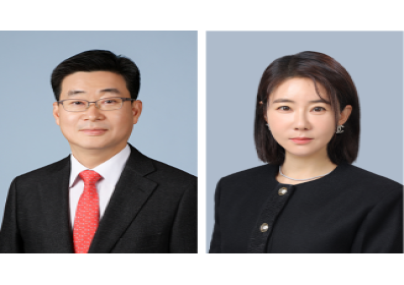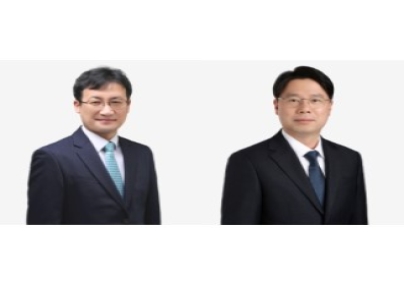The billionaire head of South Korea’s Samsung Group, Jay Y. Lee, was sentenced to five years in jail for bribery on Friday in a watershed for the country’s decades-long economic order dominated by powerful, family-run conglomerates.
After a six-month trial over a scandal that brought down the then president, Park Geun-hye, a court ruled that Lee had paid bribes in anticipation of favours from Park.
The court also found Lee guilty of hiding assets abroad, embezzlement and perjury.
Lee, the 49-year-old heir to one of the world’s biggest corporate empires, has been held since February on charges that he bribed Park to help secure control of a conglomerate that owns Samsung Electronics, the world’s leading smartphone and chip maker, and has interests ranging from drugs and home appliances to insurance and hotels.
Lee, who emerged stony-faced from the Seoul courtroom in a dark suit, but without a tie, and holding a document envelope, was escorted by justice ministry officials back to his detention centre.
“This case is a matter of Lee Jae-yong and Samsung Group executives, who had been steadily preparing for Lee’s succession ... bribing the president,” Seoul Central District Court Judge Kim Jin-dong said, using Lee’s Korean name.
Kim said that as the group’s heir apparent, Lee “stood to benefit the most” from any political favours for Samsung.
Lee denied wrongdoing, and one of his lawyers, Song Wu-cheol, said he would appeal.
“The entire guilty verdict is unacceptable,” Song said, adding he was confident his client’s innocence would be affirmed by a higher court. The case is expected to be appealed all the way up to the Supreme Court, likely next year.
The five year-sentence - one of the longest given to a South Korean business leader - is a landmark for South Korea, where the family-run conglomerates - or chaebols - have long been revered for helping transform the once war-ravaged country into a global economic powerhouse.
But they have more recently been criticized for holding back the economy and stifling small businesses and start-ups.
Samsung, a symbol of the country’s rise from poverty following the 1950-53 Korean War, has come to epitomize the cosy and sometimes corrupt ties between politicians and the chaebols.
“The ruling is a turning point for chaebols,” said Chang Sea-jin, a business professor at Korea Advanced Institute of Science and Technology. “In the past, chaebols weren’t afraid of laws because they were lenient. Now, Lee’s ruling sets a precedent for strict enforcement of laws, and chaebols should be wary.”
Under South Korean law, sentences of more than three years cannot be suspended.
LEADERSHIP VACUUM
The third-generation de facto head of the powerful Samsung Group, Lee has effectively directed operations since his father, Lee Kun-hee, was incapacitated by a heart attack in 2014. Some investors worry a prolonged leadership vacuum could slow decision-making at the group, which has more than five dozen affiliate companies and assets of 363.2 trillion won ($322.13 billion).
Its listed companies make up about 30 percent of the market value of South Korea’s KOSPI stock index.
Many tycoons, including Lee’s father, were convicted of crimes in the past, ranging from bribery, embezzlement and tax evasion, only to get presidential pardons, as both the government and the public feared going too hard on them would hurt the economy.
But South Korea’s new liberal president, Moon Jae-in, who won a May election, has pledged to rein in the chaebols, empower minority shareholders and end the practice of pardoning tycoons convicted of white-collar crime.
The presidential Blue House said in a statement that it hopes the ruling will serve as an opportunity to “end the nexus of business and politics that has held back the country.”
In a June interview with Reuters, Moon said he did not believe Samsung’s operations depended just on Lee.
“When Lee was taken into custody, the share prices of Samsung went up,” Moon said. “If we were to succeed in reforming the running of the chaebols and also increasing transparency, I believe this will not only help the economic power of Korea but also help to make the chaebols themselves more competitive.”
Investors say shares in chaebol companies trade at lower prices than they would otherwise because of their opaque corporate governance - the so-called Korea Discount.
Shares of Samsung Electronics dropped more than 1 percent, and other group companies, including Samsung C&T and Samsung SDS, also turned lower after the verdict.
The court said Samsung’s financial support of entities backed by a friend of Park’s, Choi Soon-sil, constituted bribery, including 7.2 billion won ($6.4 million) in sponsoring the equestrian career of Choi’s daughter.
In return, prosecutors say, Samsung sought government support for the 2015 merger of two of its affiliates, which helped Lee tighten control of the conglomerate. His lawyers had argued that the merger was done for business reasons.
Some criminal lawyers had expected Lee to be found innocent of the major charges, as much of the evidence at the trial has been circumstantial. The appeals court and the Supreme Court might put a greater emphasis on prosecutors to provide direct proof of quid pro quo, the lawyers said.
PARK SUPPORTERS OUTRAGED
Park, who was forced from office in March, faces her own corruption trial, with a ruling expected later this year.
Prosecutors have argued that Park and Lee took part in the same act of bribery - so Lee’s conviction would appear ominous for the former president.
Hundreds of Park's diehard supporters who rallied outside the court on Friday reacted with outrage to the ruling.
"Our ultimate goal is Park's acquittal and release," Kim Won-joon, a 62-year-old former construction worker said. "We worry how today's guilty verdict for Lee would affect Park's ruling."
Such supporters are a minority compared with the huge crowds that turned out in Seoul every week to call for Park's ouster after the bribery scandal surfaced late last year.
Public approval of Lee's prosecution may underscore growing frustration in Asia's fourth-largest economy that the wealth amassed by conglomerates has not trickled down.
"I think it was difficult for a court to ignore public opinion, given that the scandal rocked the country," said Chung Sun-sup, chief executive of research firm Chaebul.com.
"The five-year sentence was low given that he was found guilty of all the charges. I think the court gave him a lighter sentence, taking into account Samsung's importance to the economy."


